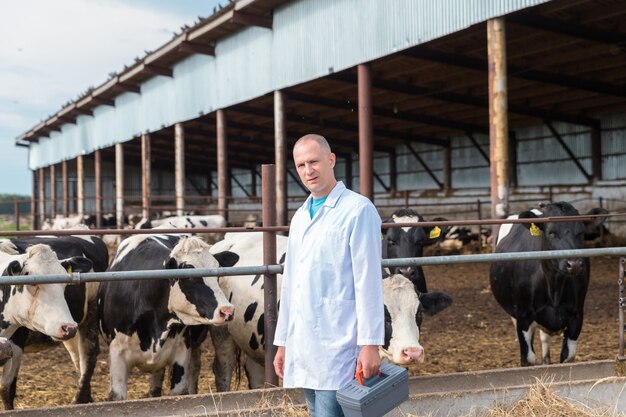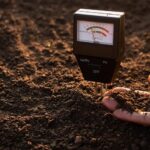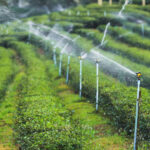Healthy livestock is the foundation of a profitable and sustainable farming operation. In South Africa, where agriculture plays a vital role in the economy, ensuring the health and productivity of animals is essential. One of the most effective ways to achieve this is by using the right equipment. With proper tools and technology, farmers can prevent diseases, enhance productivity, and improve overall livestock welfare. Here’s a guide to the essential equipment every farmer needs to boost livestock health.
1. Automatic Watering Systems
Access to clean, fresh water is critical for livestock health. Manual watering systems can lead to inconsistent supply, contamination, or wastage. Automatic watering systems ensure animals have a constant supply of clean water, which improves hydration, digestion, and overall well-being.
Key Benefits: Prevents dehydration, reduces labor, and minimizes water wastage.
Pro Tip: Choose systems with filters to remove impurities and regularly check for leaks or blockages.
2. Nutritional Feeders
Proper nutrition is vital for growth, reproduction, and immunity in livestock. Traditional feeding methods often lead to uneven distribution, wastage, or contamination. Modern feeding equipment, such as automatic feeders or troughs with weather protection, ensures accurate and hygienic feeding.
Key Benefits: Ensures consistent portioning, reduces feed waste, and keeps feed clean.
Pro Tip: Use feeders designed for the specific needs of your livestock, such as cattle, sheep, or poultry.
3. Livestock Scales
Monitoring the weight of animals is crucial for tracking their health and productivity. Sudden weight loss can indicate illness, while accurate weight data helps with proper dosing of medication or supplements. Livestock scales provide a precise way to monitor growth and detect health issues early.
Key Benefits: Helps in disease detection, ensures accurate dosing, and tracks productivity.
Pro Tip: Invest in portable or automated scales for ease of use during regular health checks.
4. Vaccination and Dosing Equipment
Vaccinating and medicating livestock is critical to preventing disease outbreaks. Using the right syringes, drench guns, and applicators ensures accurate dosing and reduces stress on the animals.
Key Benefits: Prevents underdosing or overdosing, reduces handling time, and improves vaccination effectiveness.
Pro Tip: Regularly calibrate your equipment and clean it thoroughly after use to maintain accuracy and hygiene.
5. Ventilation and Cooling Systems
Heat stress is a common issue in South Africa, especially during summer. Poor ventilation in barns or shelters can lead to respiratory problems and reduced productivity. High-quality ventilation and cooling systems ensure proper airflow, control humidity, and keep animals comfortable.
Key Benefits: Prevents heat stress, reduces respiratory issues, and enhances comfort.
Pro Tip: Use fans, misters, or automatic ventilation systems for barns and shelters.
6. Hoof Trimming Equipment
For livestock like cattle and goats, healthy hooves are essential for mobility and overall health. Neglecting hoof care can lead to lameness and infections. Hoof trimming equipment, such as shears and hydraulic crushes, makes the process safer and more efficient.
Key Benefits: Prevents infections, improves mobility, and enhances productivity.
Pro Tip: Trim hooves regularly and inspect them for signs of cracks, swelling, or infections.
7. Livestock Monitoring Systems
Technology has transformed livestock management. Smart monitoring systems allow farmers to track the health, location, and activity of their animals in real time. These systems use sensors, GPS, and software to detect early signs of illness, track grazing patterns, and optimize breeding cycles.
Key Benefits: Enables early disease detection, reduces losses, and improves decision-making.
Pro Tip: Choose monitoring systems compatible with your specific livestock type and farm size.
8. Grooming Tools
Regular grooming promotes skin health, prevents parasites, and strengthens the bond between farmers and their animals. Tools like brushes, combs, and de-shedding devices are essential for maintaining hygiene and comfort.
Key Benefits: Prevents skin diseases, reduces stress, and improves appearance.
Pro Tip: Use breed-specific grooming tools to avoid injuring sensitive skin or hair.
9. Shelter and Bedding Equipment
Proper housing protects animals from extreme weather, predators, and disease. Quality shelter equipment, such as weatherproof barns, insulated walls, and durable bedding, keeps livestock safe and comfortable.
Key Benefits: Reduces stress, prevents illness, and ensures productivity.
Pro Tip: Use bedding materials like straw or wood shavings that are easy to clean and replace.
10. Waste Management Systems
Poor waste management can lead to contamination and disease outbreaks. Tools like manure spreaders, composters, and automated cleaning systems help maintain hygiene and reduce the risk of infections.
Key Benefits: Enhances hygiene, prevents disease, and supports sustainable farming.
Pro Tip: Recycle waste into compost or biofertilizer to benefit your crops and reduce environmental impact.
Investing in the right equipment is not just about convenience—it’s a vital part of ensuring the health and productivity of your livestock. By providing clean water, balanced nutrition, proper shelter, and advanced health monitoring, South African farmers can create an environment where their animals thrive. Healthy livestock means higher yields, reduced costs, and a more sustainable operation.
Take the time to assess your farm’s specific needs and upgrade your equipment where necessary. The investment will pay off in healthier animals and a more efficient farm.







